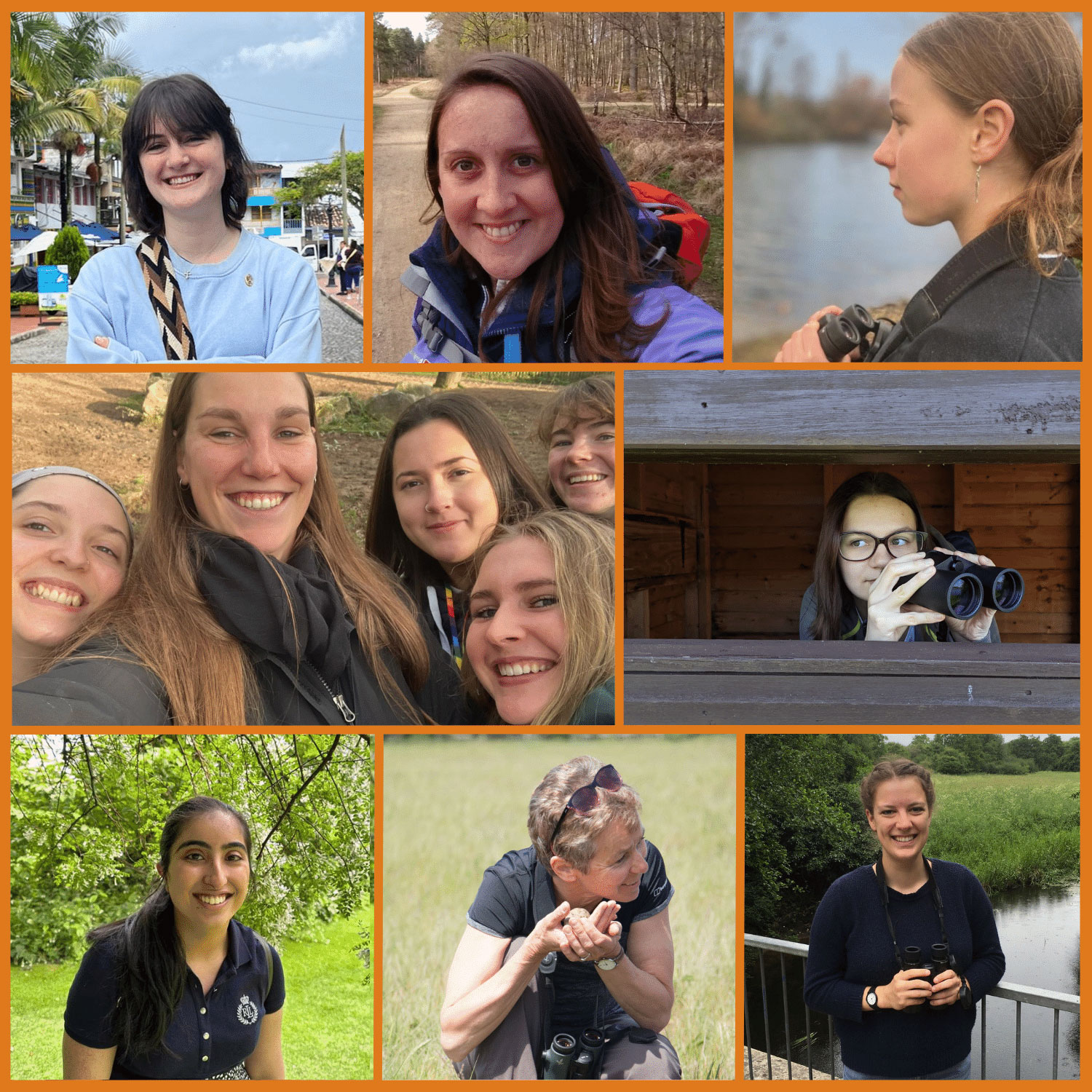
Celebrating International Women’s Day
Be the first to commentAt BTO Youth, we are choosing to celebrate IWD because women are still often underrepresented in STEM (science, technology, engineering and maths) and they continue to face discrimination in the field from their peers.
This year, the theme for IWD is ‘Inspire Inclusion’. It highlights the importance of creating an environment where women are able, and feel empowered, to participate in all areas of the environmental sector and in whatever they choose to do. We want to highlight the work BTO is doing to tackle gender equity and reflect on plans for the future.
At our recent Youth in Nature Summit, participants highlighted that there are so many incredible women involved in the environment sector who have achieved so much in their field. So we would also like to further inspire young people that they can do whatever they choose to put their mind to – regardless of their gender.
Positive steps – how BTO is supporting women
In 2023, BTO enhanced statutory maternity, adoption, shared parental (all 12 weeks full pay), and paternity leave (four weeks full pay).
BTO has also worked with female ringers to develop ringing pliers specifically for volunteers with smaller hands, who might find it harder to exert enough force through traditional pliers to close the rings of large birds. This will hopefully make certain types of ringing, like seabird and raptor ringing, more accessible to women.
In the last six months, BTO staff and volunteers have worked with consultant Helen Bown to develop a framework for greater inclusion across BTO. This relates to a key action area of the new BTO strategy, Embracing everyone, which says that BTO will inspire, engage and empower a greater diversity of people to discover and value nature.
The ambition for the framework is that actions from this will increase inclusion across all characteristics and intersectionalities, including gender, both in terms of staff, volunteering and those engaging with BTO work more widely.
BTO is now in the process of undertaking a gender pay gap report and action plan, something that will be shared publicly from 2025.
The IWD workshop
On 27 February 2024, we at BTO Youth organised and hosted a discussion workshop which all BTO’s staff and volunteers could attend. We discussed a range of topics, focusing especially on women in ornithology. You can read about the key themes discussed below.
What are some challenges women might face when doing fieldwork?
Personal safety
Many women are raised with the idea that being out alone can be dangerous, especially early in the morning or late at night, and so fear for personal safety is a serious barrier.
Often, fieldwork happens at remote sites. Women shared their experiences of travelling to these remote places with other people who they don’t know, who are usually men, which can feel unsafe. Sadly it can also be unsafe, which means women who do take part in fieldwork can face real risks.
Sometimes there can be no phone signal either to call for help if needed, which means individuals often share their location or route with family, friends and colleagues for safety reasons. We also heard from women who said that, when moving to a new place for a new job, especially if you don’t traditionally ‘fit in’, it can be quite scary.
Sexism relating to skill level
We heard stories about women being assigned only scribing or admin work rather than actual fieldwork, which indicates assumptions being made about women’s skills. It is even in the questions we get asked; compared to men, women have experiences of being asked questions about less ‘difficult’ topics. This adds to the burden of imposter syndrome, which disproportionately affects women.
Periods and health
There are often no provisions in place for managing periods, and no to little support during painful or difficult periods. This is especially the case when doing fieldwork in remote areas or at fieldwork stations with very basic facilities.
The issue is not just for periods but with an absence of toilets and other resources more generally. Women are more likely to get urinary tract infections (UTIs) because there are no facilities in place, for example. The concept of a ‘wild wee’ can also be uncomfortable, especially if most other people present are men.
Reflections on allyship and visibility
However, there are many positives too. There are lots of inspiring women and we can build each other up, especially as we understand each others’ struggles.
To achieve a bigger positive change, there needs to be allyship from men as well, standing up for us when we aren’t being listened to and building us up too. This will not only benefit the individuals but the wider organisations and the sector as a whole.
The importance of role models was then discussed and how we need them at all levels and intersectionality is a part of that. We need women of all backgrounds at all levels to be visible so others can feel seen.
Some inspirational women within BTO
Gill Birtles
WeBS Counter Network Organiser
“Having previously worked in spaces where both men and women haven’t respected my role in the room, working at BTO has been nothing but a joy, with fantastic colleagues who champion and support each other and make sure the female voice is heard.”
Faye Vogely
BTO Youth Engagement Manager
“Working with the next generation of amazing young women through the BTO Youth programme, I have nothing but hope for a better and more equitable future.”
Juliet Vickery
BTO Chief Executive
“Make time to keep connected with the things that inspire you – like the joy of hearing a Curlew chick peeping in the egg moments before hatching!”
“Seek out and have fun with allies and learn from them and their experience.”
Dr Ailidh Barnes, BTO Research Ecologist
“I have supportive managers and colleagues, both male and female, who are helping me to develop as a scientist and as a person in ornithology. I have fantastic women to look up to and aspire to be like across the organisation, and all are happy to pass on wisdom and advise me in all walks of life.
I love working at BTO and the more I put into it the more I get out of it. I try to make a connection with others, especially new members of staff, whether it’s a wee hello online via email or chat, or in person, as I feel it is so important to make everyone feel welcome, valued and important in our roles. Imposter syndrome is a massive issue, particularly in women, and those positive validations are vital and in plentiful supply, which makes BTO a wonderful place to work.”
What piece of advice would you give to yourself?
We asked individuals at all stages of their careers to share their insights.
- Believe in yourself. Many of us want to improve our confidence but it’s self-belief that it comes down to. Be able to set boundaries and you are allowed to speak up for yourself, especially if something is making you uncomfortable.
- Keep going and working on what you want; you will get there. Don’t let imposter syndrome get you down.
- Never feel like you don’t deserve a seat at the table. Don’t compare yourself to others; what you are doing is amazing.
- Don’t let expectations weigh you down. Sometimes it can feel like you have to be the best of the best, but that doesn’t have to be what motivates you. Remind yourself of why you are where you are. It does get lonelier at the top and so if you’re just in it for the money it won’t work.
- Take up opportunities outside of work where you can develop your skills and connect with more individuals. You also don’t have to say yes to everything: give yourself space.
- Own your successes; you are allowed to say you are awesome!
Plans for the future
Often, the conservation sector and the science industry can be a challenging environment for women. Building confidence as a woman within these environments can be difficult because of the lack of female representation and, too often, the negative attitude towards women in these fields.
This is why BTO Youth is currently planning a women-only residential: to create a safe place for women in the nature and conservation sector, where they can build confidence together and create a community of support.
The aim of this residential is to empower women professionally and socially whilst also creating a space to learn from one another, and nature, and share experiences and the issues that they face.
Final workshop reflections
Overall, everyone enjoyed and felt empowered after the workshop and loved hearing about different experiences and stages of careers. Being a woman can be hard so we need to support each other and help each other.
Finally, we were reminded how crucial it is that the conversation includes everyone. Moreover, BTO youth, volunteers and staff are keen to keep collaborating to drive forward change.
Get involved with BTO Youth
Join us at Youth-specific events, sign up to our newsletter and read articles by our amazing Youth volunteers.
Equity, Diversity and Inclusion
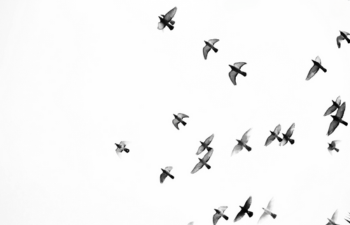
BTO’s commitment to reducing and removing barriers and creating an inclusive environment.
Make an Inspire Inclusion pledge
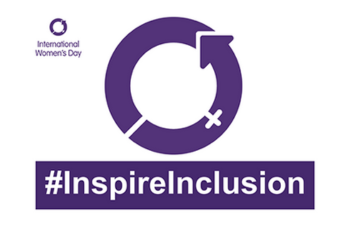
Show your solidarity and encourage others to help forge a more inclusive world for women.
Discover other organisations supporting women in conservation
Participants in the workshop shared these organisations that are also doing amazing work for gender equity.
Girls Who Click
Girls Who Click is a non-profit organisation that empowers young women to take part in nature photography (a largely male-dominated field). It also encourages young women to partake in conservation efforts.
It provides free nature photography workshops and has an ambassador programme as well.
Black Girls Hike
Black Girls Hike are dedicated to creating a safe and inclusive space for black women to enjoy the outdoors.
Their events are mainly in the USA but they are a global community. They aim to empower black women in nature engagement – as they are underrepresented due to the concern for safety in the wild.
They organise group hikes, camping trips and outdoors skills workshops, and enable black women to connect with each other, share experiences and build friendships.
The North Face Explore Fund
The North Face Explore Fund is a grant program from The North Face that supports women-led projects around the world.
It is focused on protecting the environment and inspiring exploration in underrepresented communities.
Girlguiding UK
Girlguiding UK offer a wide range of activities and opportunities for girls aged five to 18 – including connecting with nature and developing outdoor skills.
They have a ‘Take Action’ programme which focuses on girls becoming active citizens and making a difference in their communities (including the environment).
Cambridge Conservation Forum’s (CCF’s) Women in Conservation Leadership
CCF’s Women in Conservation Leadership is part of a large-scale ‘Women in Conservation’ programme which supports women’s leadership and participation in conservation efforts globally.
Its two main focus areas are institutional change and personal empowerment.
Women in Wildlife
The aim of Women in Wildlife is to connect and amplify women working within the wildlife industry.
They hope to create a network of strong females working within the wildlife industry, to help bridge one of the gaps which are preventing women from thriving in their dream wildlife careers.

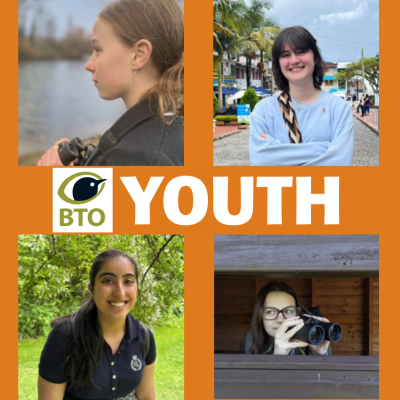

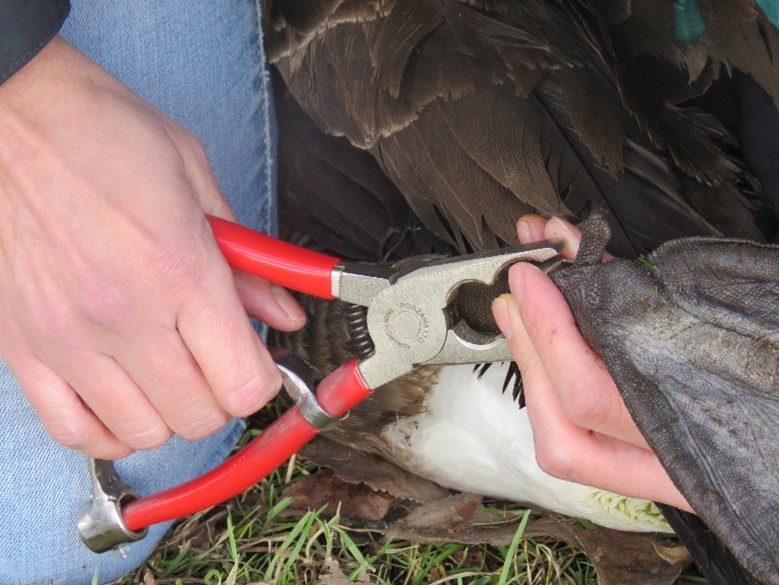
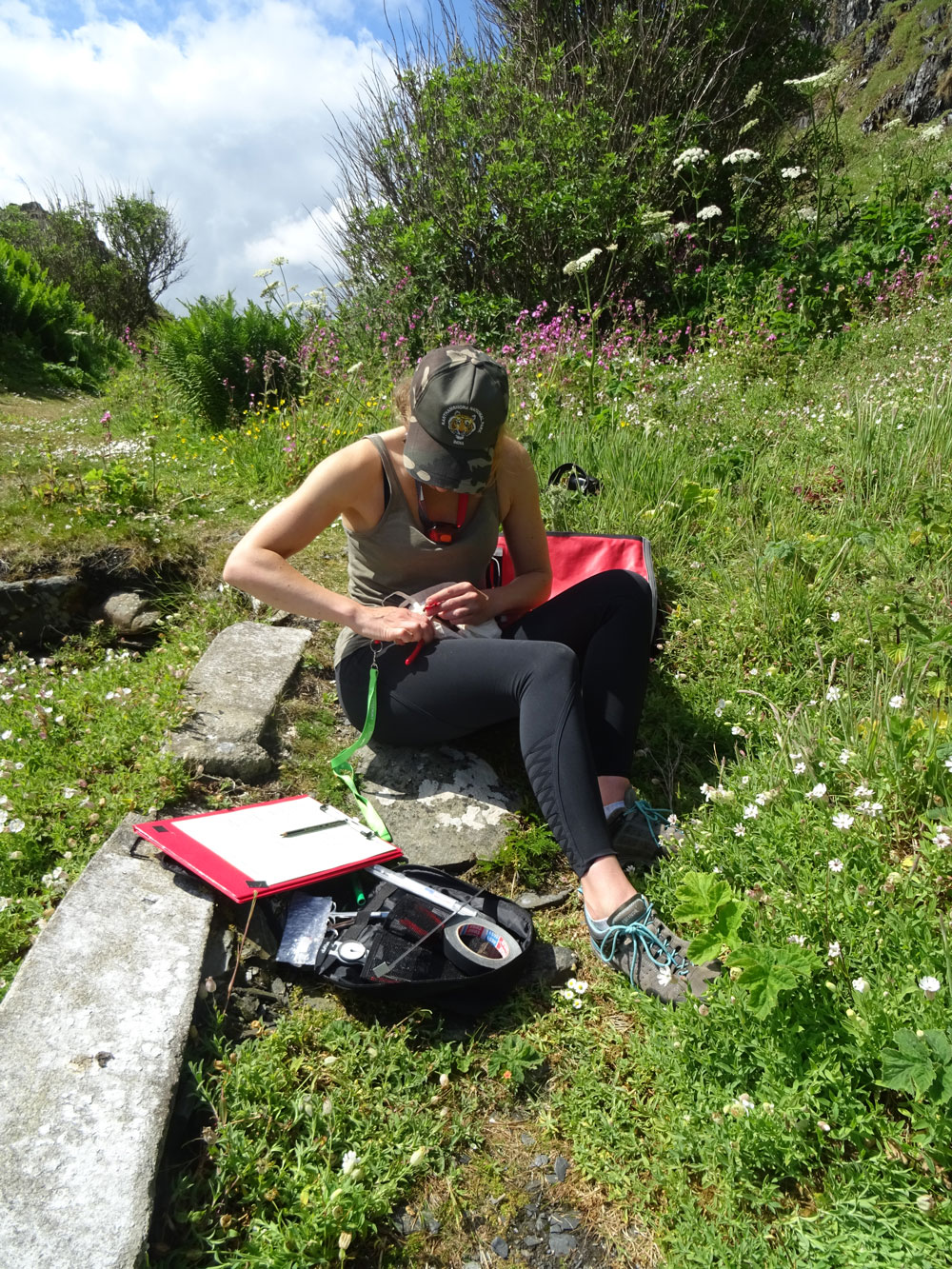
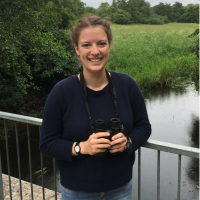
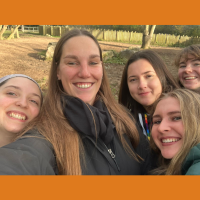
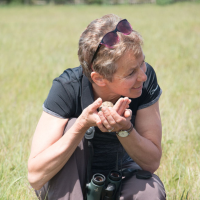
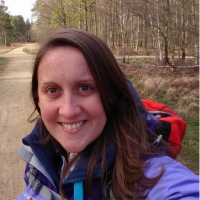
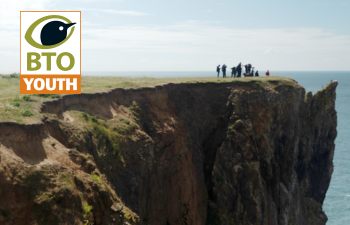

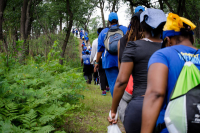
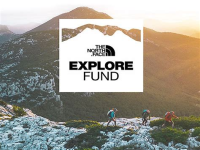

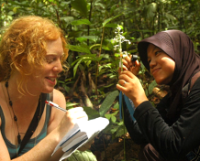
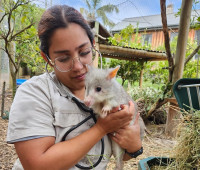


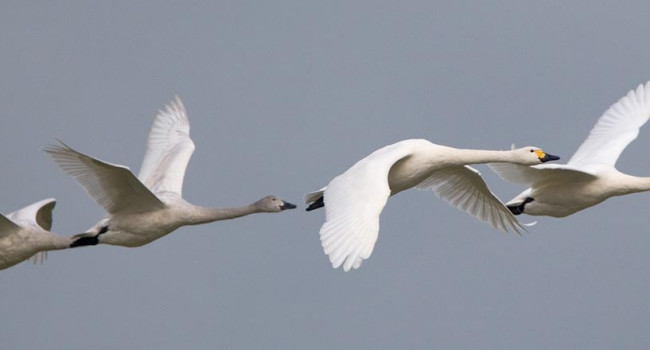

Share this page